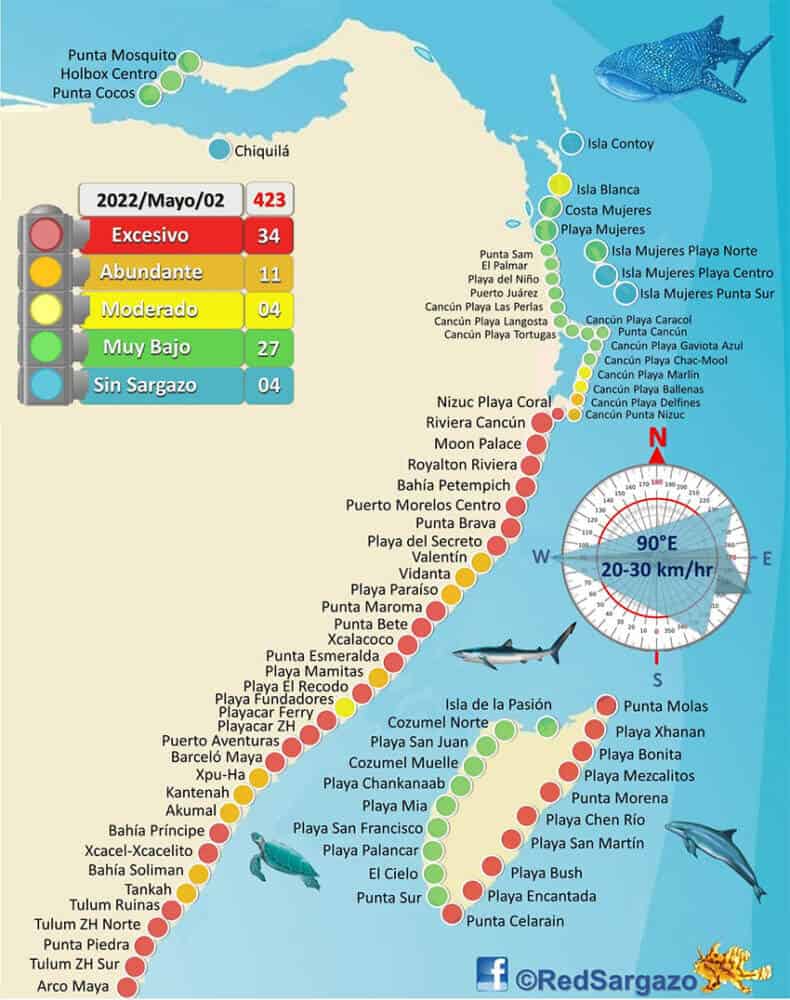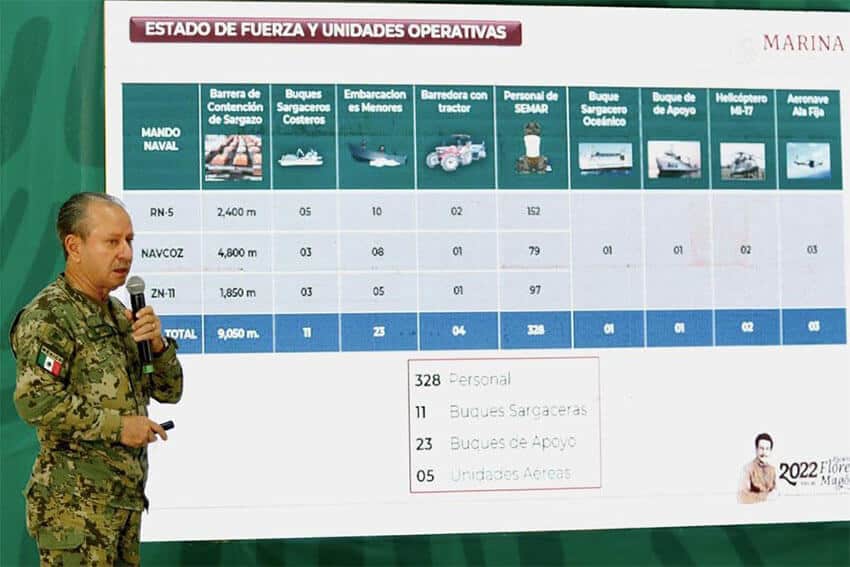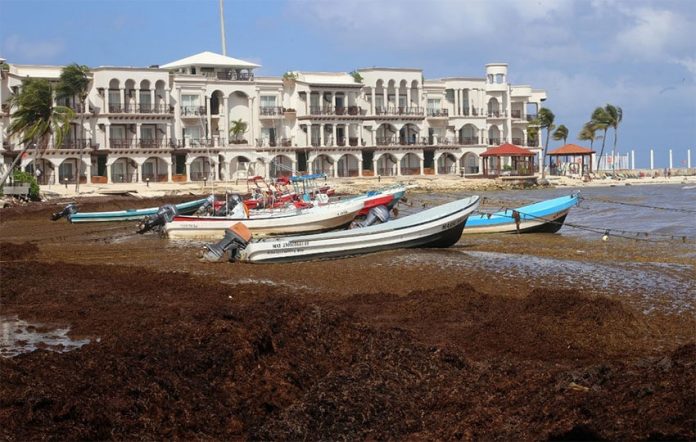Navy Minister Rafael Ojeda warned Friday that over 30,000 tonnes of sargassum were located off the coast of Quintana Roo.
Speaking at President López Obrador’s morning press conference – held Friday in the Quintana Roo municipality of Isla Mujeres – Ojeda said the navy was monitoring an estimated 32,000 tonnes of the seaweed.
“We’re going to try to stop it from reaching the beaches,” he said, referring to the navy’s efforts to collect the seaweed at sea. If it does wash up on shore, it will be removed, the navy chief said.
“This sargassum reaches the Mexican Caribbean and a lot of the time continues its trajectory towards the Gulf of Mexico,” Ojeda said.
“We can say that the current situation is alarming, it’s a category 8 [situation],” he said, explaining that meant an excessive amount of sargassum could arrive on Quintana Roo beaches.

The Quintana Roo sargassum monitoring network’s map shows that 34 beaches currently have excessive amounts of sargassum. Among those where excessive quantities of the smelly and unsightly seaweed have washed up are beaches in the Cancún, Playa del Carmen and Tulum areas and beaches along the eastern coast of Cozumel.
Ojeda noted that the navy has removed 97 tonnes of sargassum from the sea since February 15 and cleared over 9,000 tonnes from beaches. He said that 328 marines, 11 sargassum-gathering vessels, 23 other boats and five air units are supporting the navy’s seaweed removal and collection efforts.
The navy chief said that sargassum affects the coastlines of a lot of countries but Mexico is the only one where federal, state and municipal authorities are working together to combat the problem.
“We would like the results to be better but in one way or another we are combating the problem,” Ojeda said.
The director of the Quintana Roo sargassum monitoring network disagrees, saying last month that Mexico’s anti-sargassum strategy doesn’t work.
“Over and over again the same deficiencies have been on display. For example, we’ve already seen that the barriers don’t work because the sargassum goes over [them]. They’re barriers designed for the contention of oil spills,” Esteban Amaro said.

Removing sargassum from beaches is not only very hard work but also very expensive.
A study by the National Autonomous University’s reef systems unit in Puerto Morelos determined that removing sargassum from beaches costs authorities between 6 million and 10 million pesos (US $293,000 to $488,000) per kilometer per year.
Rosa Rodríguez, head of the unit, told the newspaper Milenio that the government should be encouraging the use of sargassum for industrial purposes.
“It’s worth investing [in sargassum] … research [and] management … and promoting the industry because sargassum has the potential to be used in different industries,” she said.
“But we need regulations … [and] fiscal incentives” to encourage its use, Rodríguez said.
With reports from Animal Político and Milenio
